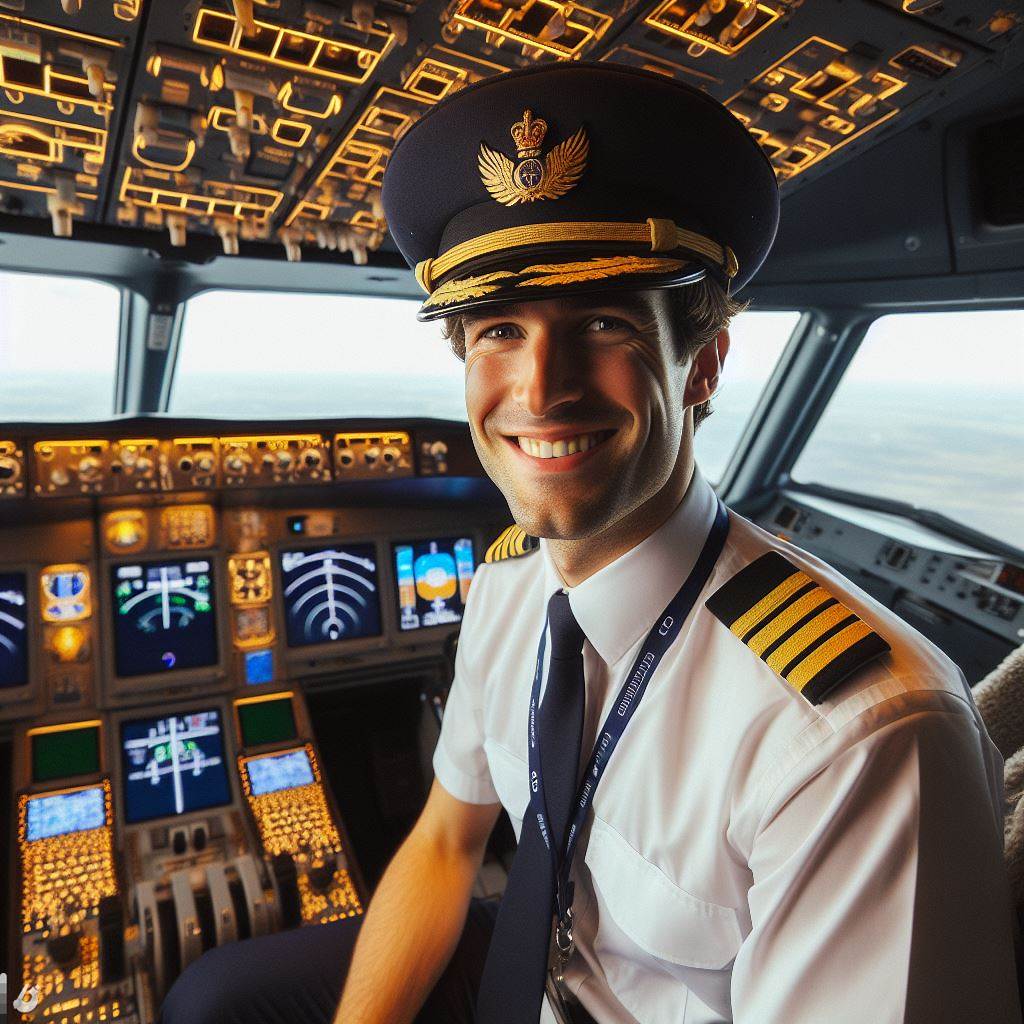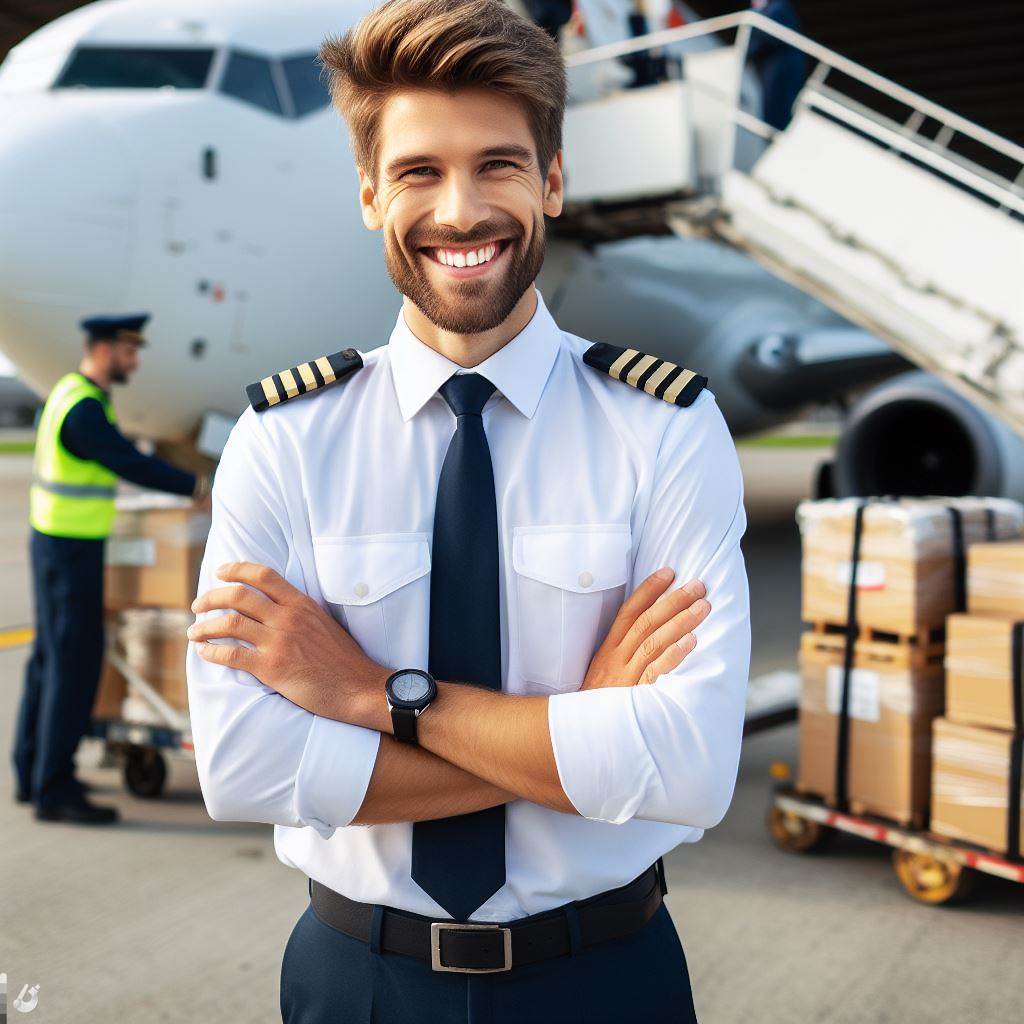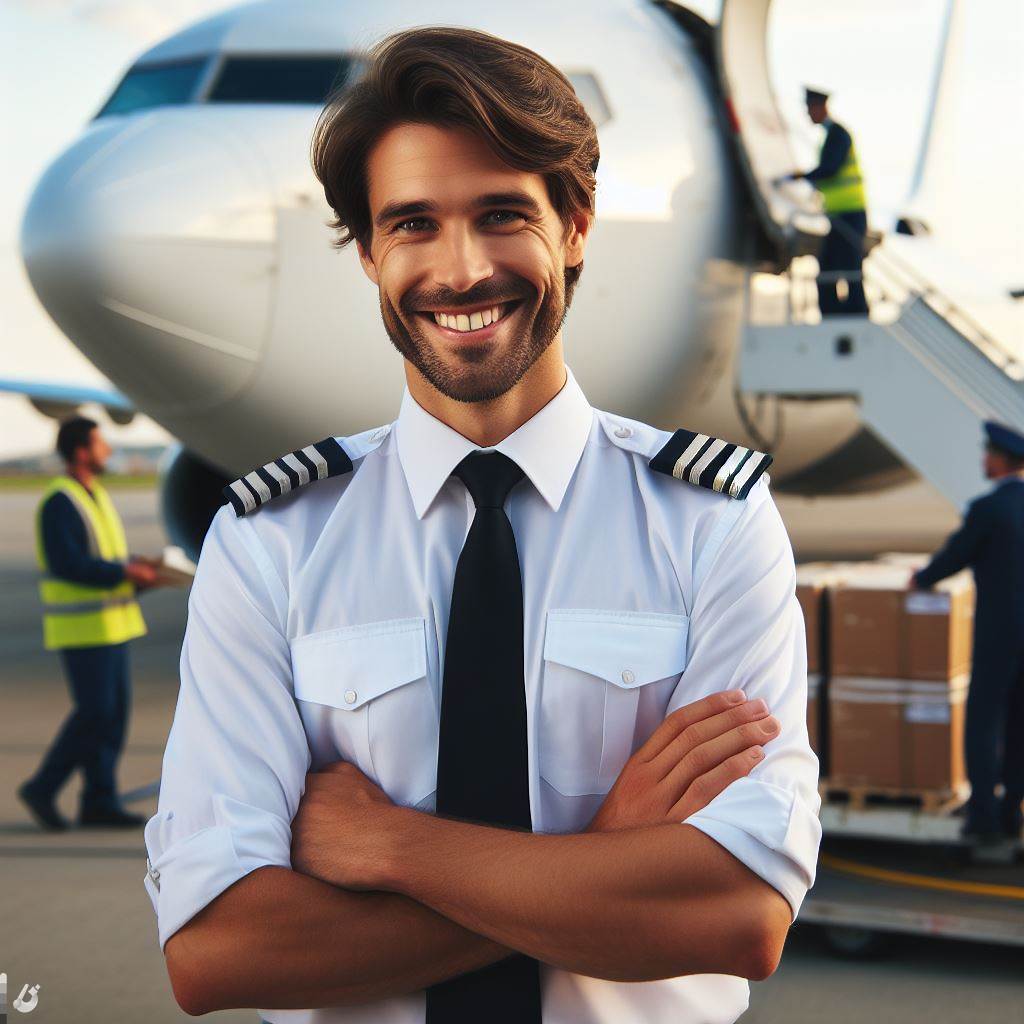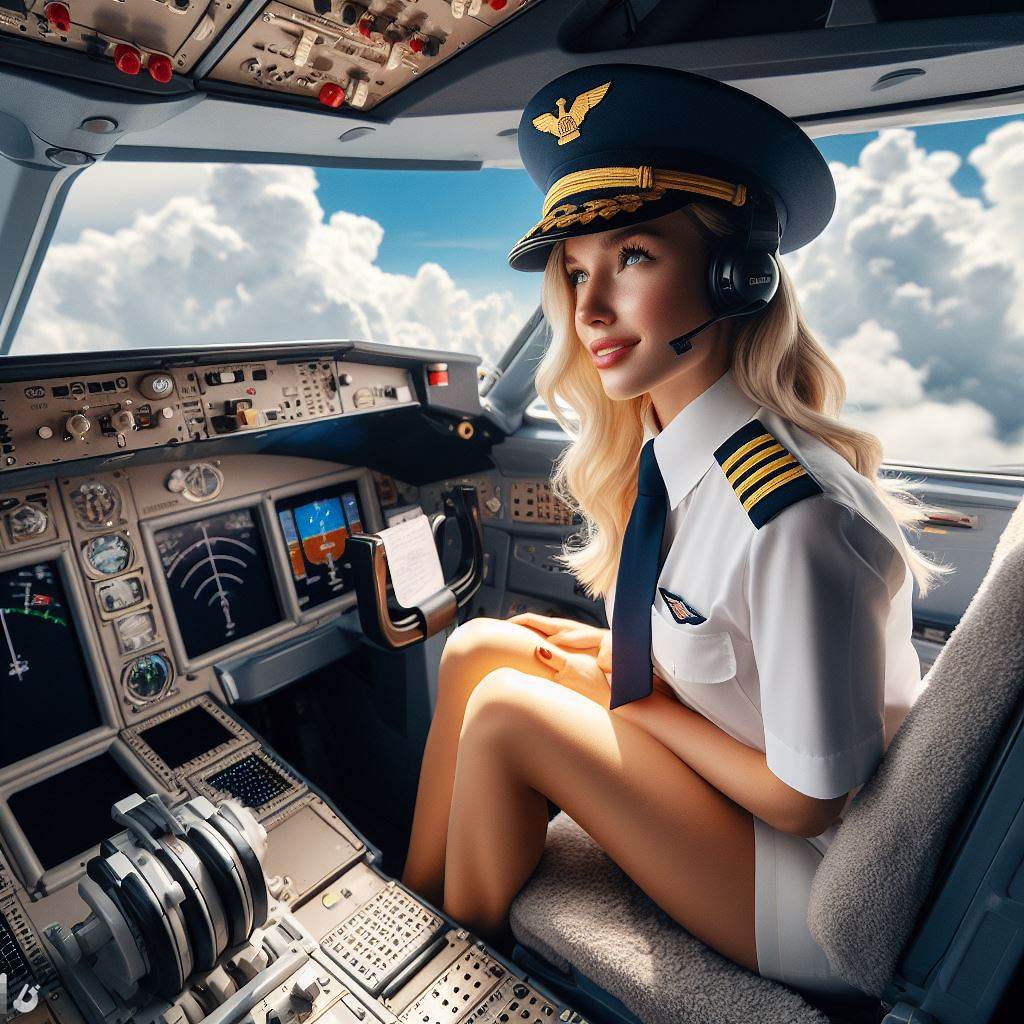Introduction
In the UK, military piloting involves flying aircraft for defense purposes, while commercial piloting entails flying for commercial airlines.
Both professions are popular and in high demand.
Navigating the vast airspace of the United Kingdom, military and commercial pilots command attention for their pivotal roles in safeguarding national security and facilitating global connectivity.
Beyond the cockpit, their trajectories intersect with broader societal and economic landscapes.
Military pilots, honed through rigorous training, undertake missions vital to defense, while commercial aviators orchestrate seamless journeys for passengers and cargo.
This examination unveils the intricate tapestry woven by these aviation professionals, exploring the training regimens, technological interfaces, and overarching impacts that distinguish military and commercial piloting in the intricate airspace above the British Isles.
As we ascend through the layers of this exploration, a comprehensive understanding emerges of the unparalleled commitment, expertise, and influence wielded by these aviators within the multifaceted tapestry of UK aviation.
Background on Military Piloting
Explanation of military piloting in the UK
Military piloting in the UK involves serving as a pilot in the armed forces, operating various aircraft for military missions.
Military piloting in the UK is a prestigious and challenging career path that involves serving as a pilot in the armed forces.
This demanding role requires highly skilled individuals who are capable of operating various aircraft for military missions.
Military pilots play a crucial role in the defense and security of the country, providing support in combat situations and performing vital reconnaissance operations.
Overview of the requirements and training involved
To become a military pilot, aspiring candidates must fulfill specific requirements set by the armed forces.
These requirements include educational qualifications, generally a bachelor’s degree, along with a certain level of physical fitness.
The rigorous selection process ensures that only the most competent individuals are chosen for pilot training.
The training involved in military piloting is intense and comprehensive.
Personalized UK Career Consulting
Receive tailored career guidance designed just for you. Get actionable steps and expert support to boost your career in 1-3 days. Take control of your career now.
Get StartedIt combines classroom instruction, simulator practice, and actual flight experience.
The training program aims to develop and refine the necessary skills and knowledge required to operate military aircraft effectively.
It covers a wide range of subjects, including navigation, aerodynamics, emergency procedures, and combat tactics.
The benefits and drawbacks of military piloting
Benefits
One of the significant benefits of military piloting is job security.
Military pilots often have stable employment, as they serve within the armed forces and are part of a structured organization.
Moreover, they are entitled to receive competitive salaries and various benefits, such as healthcare, retirement plans, and housing allowances.
These factors make military piloting an attractive career option for those seeking stability and financial security.
Another advantage of military piloting is the opportunity to work with advanced aircraft and cutting-edge technology.
Military pilots have access to state-of-the-art aviation equipment, which provides them with a unique and challenging flying experience.
Operating modern aircraft requires continuous learning and adaptation to new technologies, keeping military pilots at the forefront of aviation advancements.
Drawbacks
However, military piloting also has its drawbacks. One of the main concerns is the potential for extended periods away from family.
Military pilots are often deployed to various locations, both domestically and internationally, for training exercises and combat missions.
This can be emotionally challenging, particularly for those with families or personal commitments.
Moreover, the inherent risks associated with military piloting cannot be overlooked.
Your Dream Job Starts with a Perfect CV
Get a tailored CV and cover letter that captures your unique strengths and stands out in your industry. Let us help you make an unforgettable first impression.
Get StartedPilots may face dangerous situations during combat missions, exposed to hostile environments and the potential for enemy engagement.
The physical and mental demands of such operations can be grueling, placing military pilots in high-pressure situations where split-second decisions can have significant consequences.
In summary, military piloting in the UK offers a rewarding career path for individuals with a passion for aviation and a desire to serve their country.
The rigorous training, competitive salaries, and access to advanced technology make it an appealing choice for many.
However, the sacrifices, including time away from loved ones and the inherent risks involved, must also be considered.
Ultimately, the decision to pursue military piloting should be made with careful consideration of both the benefits and drawbacks.
Read: Pilot Unions in the UK: Their Influence
Background on Commercial Piloting
Explanation of commercial piloting in the UK
Commercial piloting in the UK involves individuals operating aircraft for non-military purposes, such as carrying passengers or cargo.
It is an essential sector of the aviation industry, contributing significantly to the country’s economy.
Overview of the requirements and training involved
To become a commercial pilot in the UK, aspiring candidates must undergo extensive training and meet certain requirements.
These include obtaining a commercial pilot license, hours of flight experience, passing medical examinations, and completing theoretical and practical exams.
- Commercial pilot license: To fly commercially, pilots must hold a valid Commercial Pilot License (CPL) issued by the Civil Aviation Authority (CAA).
- Flight experience: Aspiring commercial pilots must complete a minimum number of flight hours, usually around 150-200 hours.
- Medical examinations: Pilots are required to undergo regular medical assessments to ensure they are fit to fly.
- Theoretical exams: Candidates must pass written examinations covering subjects such as meteorology, navigation, aircraft systems, and aviation regulations.
- Practical exams: Pilots undergo flight tests to assess their knowledge, skills, and ability to handle various scenarios.
Benefits of Commercial Piloting
- Career opportunities: Commercial pilots have access to a variety of career paths, including working for airlines, cargo companies, or private charter services.
- Travel opportunities: Pilots get to explore different destinations while on duty, experiencing diverse cultures and landscapes.
- Financial rewards: Commercial pilots often enjoy competitive salaries and benefits, making it a financially rewarding career choice.
- Personal growth: The profession requires continuous learning and skill development, providing opportunities for personal growth and self-improvement.
Drawbacks of Commercial Piloting
- Long working hours: Pilots often work irregular schedules, including overnight flights and weekends, which can disrupt personal and social life.
- Stressful situations: Pilots face high-pressure scenarios, such as adverse weather conditions or technical malfunctions, requiring the ability to make quick and critical decisions.
- Lengthy training period: Becoming a commercial pilot involves substantial time and financial investment in training, making it inaccessible for some aspiring candidates.
- Job instability: Economic fluctuations and industry uncertainties can lead to job insecurity, with pilots sometimes facing furloughs or layoffs during challenging times.
Commercial piloting presents an exciting and challenging career path for individuals passionate about aviation.
While it offers various benefits, such as career opportunities, travel experiences, and financial rewards, it also comes with drawbacks such as long working hours and job instability.
Aspiring pilots must carefully weigh the pros and cons before embarking on this career journey.
Optimize Your LinkedIn for Success
Boost your LinkedIn profile with a professional bio, keyword-rich headline, and strategic recommendations that attract recruiters. Stand out from the crowd and get noticed.
Optimize NowRead: The Role of Technology in UK Pilot Training
Comparison of Job Responsibilities
When it comes to comparing the job responsibilities of military and commercial pilots in the UK, there are several key aspects to consider.
This sectionwill delve into the detailed comparison of their job responsibilities, highlighting the similarities and differences in their roles, and examining the level of autonomy and authority in each profession.
Job Responsibilities of Military Pilots
- Military pilots have a dual responsibility of operating aircraft and fulfilling mission objectives.
- They are responsible for combat operations, surveillance, reconnaissance, and air support missions.
- Military pilots must undergo rigorous training and continuously maintain their flight proficiency.
- They have to navigate and operate advanced weaponry systems on board.
- These pilots are also required to coordinate with ground forces and air traffic control.
- They are responsible for ensuring the safety of their crew members and aircraft.
- Military pilots often serve in combat zones and are exposed to high-risk environments.
Job Responsibilities of Commercial Pilots:
- Commercial pilots primarily focus on transporting passengers or cargo safely to their destinations.
- They are responsible for flight planning, conducting pre-flight checks, and ensuring the aircraft’s airworthiness.
- Commercial pilots must follow strict regulations, including complying with air traffic control instructions.
- They communicate with air traffic control to navigate through various airspace and maintain a safe distance from other aircraft.
- Commercial pilots need to handle emergency situations calmly and efficiently.
- They provide excellent customer service while adhering to the airline’s policies and procedures.
Similarities and Differences in Job Responsibilities:
Although military and commercial pilots have distinct job responsibilities, there are some notable similarities and differences between their roles.
- Both military and commercial pilots require excellent flying skills and extensive knowledge of aviation principles.
- They both prioritize the safety of their passengers and crew members.
- However, military pilots often face more life-threatening situations and combat-related responsibilities.
- Commercial pilots, on the other hand, have a greater emphasis on customer service and schedule adherence.
- Military pilots operate under strict military protocols and hierarchies, whereas commercial pilots work within airline policies and standard operating procedures.
Autonomy and Authority
The level of autonomy and authority differs significantly between military and commercial pilots.
- Military pilots often have more autonomy when it comes to decision-making during combat missions.
- They have the authority to take immediate actions to ensure mission success and the safety of their team.
- Commercial pilots, on the other hand, have limited autonomy as they must adhere to strict procedures and follow instructions from air traffic control.
- They must obtain clearance for various aspects of flight operations.
- However, commercial pilots have the authority to make decisions regarding passenger safety and flight operations.
In fact, military and commercial pilots have different job responsibilities, with military pilots focusing on combat missions and commercial pilots prioritizing safe transportation of passengers.
While there are some similarities, the level of autonomy and authority greatly differs between the two professions.
Both roles require exceptional skills and dedication, contributing to the overall aviation industry in the UK.
Read: A Day in the Life of a UK Train Operator

Comparison of Work Environment
Discussion of the work environments of military and commercial pilots
When it comes to the work environments of military and commercial pilots in the UK, there are several key differences that set them apart.
These differences include schedules, locations, types of flights, work-life balance, and flexibility.
The differences in schedules, locations, and types of flights
Schedules
- Military pilots often have a more rigid and structured schedule compared to their commercial counterparts.
- Commercial pilots, on the other hand, have varying schedules that can include early mornings, late nights, and long-haul flights.
- Military pilots may have to adhere to strict timelines and mission requirements.
- Commercial pilots may sometimes have more flexibility in choosing their schedules.
Locations
- Military pilots may have to be stationed in specific locations dictated by their unit or mission requirements.
- Commercial pilots have the opportunity to fly to various destinations around the world.
- Commercial pilots can experience different cultures and explore new places with their job.
- Military pilots may have limited opportunities to explore new locations due to their assigned bases.
Types of Flights
- Military pilots primarily focus on combat and tactical missions, with the objective of protecting national security.
- Commercial pilots are responsible for transporting passengers and goods, ensuring their safety and comfort.
- Commercial pilots have the opportunity to fly different types of aircraft, including large commercial jets.
- Military pilots specialize in flying specific types of military aircraft, depending on their assigned roles.
Work-Life Balance and Flexibility
- Military pilots often experience a lack of work-life balance due to the demands of military operations and deployments.
- Commercial pilots may have more control over their work schedule, allowing for a better work-life balance.
- Commercial pilots have the flexibility to choose their flying assignments based on their preferences.
- Military pilots may need to prioritize their duties and commitments over personal and family life.
In essence, military and commercial pilots in the UK have distinct work environments.
Military pilots have more structured schedules, limited locations, specific types of flights, and may experience challenges in achieving work-life balance.
On the other hand, commercial pilots have more flexibility in scheduling, opportunities to explore different locations, diverse types of flights, and potentially better work-life balance.
Choosing between military and commercial piloting depends on individual preferences and priorities.
Read: Women in Air Traffic Control: UK Perspectives
Comparison of Salary and Benefits
In the UK, both military and commercial pilots enjoy a range of salary and benefits. Let’s compare them:
Salary Ranges
- Military pilots receive a base salary starting from £50,000 to over £100,000 per year.
- Commercial pilots have a salary range of £22,000 to £170,000 per year, depending on experience and aircraft type.
- Overall, military pilots tend to earn higher salaries compared to their commercial counterparts.
Benefits and Perks
- Military pilots receive benefits such as free healthcare, housing allowances, and subsidized education for their children.
- Commercial pilots often receive benefits like travel discounts, health insurance, and retirement plans.
- Both professions offer unique perks. Military pilots have access to on-base recreational facilities and discounted services. Commercial pilots enjoy travel opportunities and flexible schedules.
Job Security
- Job security is generally higher for military pilots as they have a long-term commitment and their positions are not usually affected by economic fluctuations.
- Commercial pilots may face job uncertainties due to factors like airline bankruptcies or industry downturns.
- However, demand for commercial pilots is expected to increase with the growing aviation industry, offering more stable job prospects.
Retirement Plans
- Military pilots benefit from a defined pension plan, guaranteeing a percentage of their salary after retirement based on years of service.
- Commercial pilots can contribute to retirement plans such as 401(k) or individual retirement accounts (IRAs) for their financial security after retirement.
- The amount of retirement savings in commercial aviation mainly depends on the pilot’s contribution and market performance.
In general, while military pilots tend to have higher salaries and additional benefits, commercial pilots also enjoy perks and have potential for growth in the aviation sector.
Job security and retirement plans differ between the two professions, but both offer rewarding career paths.
It ultimately depends on personal preferences and priorities when choosing between military and commercial piloting in the UK.
Comparison of Career Progression
Examining the career paths and opportunities for advancement in military and commercial piloting
In the United Kingdom, both military and commercial piloting offer distinct career paths with unique opportunities for advancement.
Starting with military piloting, individuals who aspire to become military pilots must go through a rigorous selection process.
Once selected, they undergo extensive training that covers various aspects of aviation, including flying techniques and combat tactics.
As military pilots gain experience and expertise, they have the chance to progress through the ranks and take on increased responsibilities.
With each promotion, military pilots may receive additional benefits such as higher salaries, better accommodations, and improved job security.
In contrast, commercial pilots follow a different career progression path.
They typically start as co-pilots or first officers, working for commercial airlines, cargo companies, or private jet operators.
As they accumulate flight hours and gain experience, commercial pilots become eligible to upgrade their roles to captains or commanders.
Unlike military pilots, commercial pilots’ advancement is often based on merit and seniority within their respective airlines.
The potential for promotions and increased responsibilities
In terms of promotions, military pilots have a structured career path that allows for significant advancement.
They can progress from being a pilot officer or flying officer to squadron leader, wing commander, group captain, and ultimately air commodore.
With each promotion, they take on additional responsibilities, such as leading larger flight squads and managing aviation operations.
This progression can provide military pilots with a sense of achievement and the opportunity to develop leadership skills.
On the other hand, commercial pilots’ promotions are often tied to their performance, flight hours, and seniority.
Many commercial pilots aim to become captains, as this role comes with more authority and higher salaries.
However, these promotions are contingent on several factors, such as the availability of captain positions within the airline.
While promotions in the commercial sector may not follow a rigid structure like the military, there is still plenty of potential for growth.
Consideration of the long-term prospects and job stability
When it comes to long-term prospects and job stability, both military and commercial piloting offer certain advantages.
In military piloting, individuals enjoy job security and stable employment throughout their careers.
Once they complete their initial training, they are committed to a specific contract length, providing them with a stable income.
However, military pilots may have limited control over their deployments and may be required to relocate frequently.
For commercial pilots, job stability is influenced by various factors, such as economic conditions, airline profitability, and industry demand.
In times of economic downturn, commercial pilots may face layoffs or more competitive job markets.
Nevertheless, the demand for air travel continues to grow globally, suggesting promising long-term prospects for commercial pilots.
In a nutshell, military and commercial piloting present distinct career paths with different opportunities for advancement.
Military pilots have a structured progression that leads to higher ranks and increased responsibilities.
Commercial pilots, on the other hand, advance based on merit, flight hours, and seniority within their airlines.
Both career paths offer long-term prospects and job stability, albeit with some variations.
Ultimately, individuals must consider their interests, preferences, and goals before choosing between military or commercial piloting.
Conclusion
In this blog post, we discussed the main differences between military and commercial piloting in the UK.
We explored the training, career prospects, lifestyle, and financial aspects of both professions.
When choosing between military and commercial piloting, it is important for readers to consider their own interests, goals, and preferences.
Military piloting offers the opportunity to serve your country, fly advanced aircraft, and receive rigorous training.
Commercial piloting, on the other hand, provides career stability, travel opportunities, and the potential for higher earnings.
To further explore these professions, readers are encouraged to check out the following resources:
- Military Aviation Authority (MAA) website: The MAA provides information on military flying operations, safety regulations, and pilot training programs.
- Civil Aviation Authority (CAA) website: The CAA offers insights into the commercial aviation industry, licensing requirements, and pilot career pathways.
- Professional pilot forums: Online forums like PPRuNe (Professional Pilots Rumour Network) and Jetcareers provide a platform for pilots to share their experiences, advice, and discuss industry trends.
- Pilot training academies: Investigate reputable flight schools or academies that offer both civilian and military pilot training programs. This can provide a deeper understanding of the training curriculum, costs, and opportunities available.
Ultimately, the choice between military and commercial piloting depends on individual aspirations and priorities.
By carefully considering the factors discussed in this blog post and exploring further resources, readers can make an informed decision about their future in aviation.
[E-Book for Sale]
500 Cutting-Edge Tech Startup Ideas for 2024 & 2025: Innovate, Create, Dominate
$19.99 • 500 Tech Startup Ideas • 62 pages
You will get inspired with 500 innovative tech startup ideas for 2024 and 2025, complete with concise descriptions to help you kickstart your entrepreneurial journey in AI, Blockchain, IoT, Fintech, and AR/VR.




